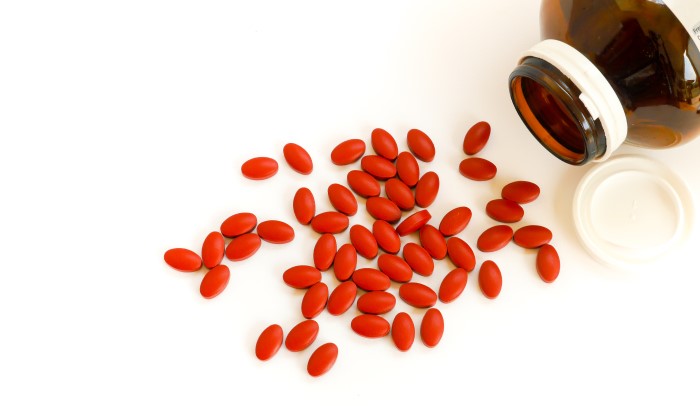Do I Need Iron Supplements After Gastric Sleeve Surgery?
Posted by Pharmics on 22nd Jun 2020
If you recently had gastric sleeve, bypass or band surgery, research indicates that you face an increased risk of iron deficiency and anemia. In fact, almost two-thirds of bariatric surgery patients develop anemia.
Taking iron supplements after gastric sleeve surgery or any other type of bariatric surgery is an effective way of supporting your nutritional intake and overall health. Not all iron supplements are created equal, however. The effectiveness of any supplementation depends on the formulation and delivery method.

Iron Deficiency Anemia Risk After Weight Loss Surgery
All bariatric surgery patients are at risk for post-surgical iron deficiency anemia (IDA). The body absorbs dietary minerals in the first segment of the small intestine, known as the duodenum. Gastric surgery typically causes any foods you eat to bypass your duodenum and, as a result, your ability to absorb iron from your diet is diminished. In addition, iron-rich foods are often not well-tolerated after surgery, making it even harder to meet your dietary requirements.
The factors that affect your level of anemia risk include the type of surgery you had, your age and your sex. For example, women who menstruate face a substantially higher risk of IDA than men and younger women. Overall, women face a higher risk than men.
If you underwent Roux-en-Y surgery, the prevalence of post-operative iron deficiency is between 18% and 53%. If you had gastric sleeve surgery (sleeve gastrectomy), the risk goes up to 54%.
Your risk of IDA never diminishes over the course of your life. For that, you and your doctor must monitor your nutritional levels regularly.
When Should You Consider Iron Supplementation?
One of the biggest problems that bariatric surgery patients face is that IDA is often not diagnosed and, as a result, not treated. Left untreated, IDA can lead to troublesome chronic symptoms and, in some cases, long-term detrimental health effects.
Some common symptoms of post-bariatric surgery iron deficiency and IDA include:
- Headache,
- Pounding in the ears,
- Paleness or yellow skin,
- Ice or clay cravings,
- Weakness,
- Fatigue,
- Hair loss,
- Rapid heartbeat,
- Shortness of breath, and
- Chest pain.
Some patients don’t have noticeable symptoms. Monitoring your nutritional levels can help determine whether you need a supplement. In most cases, however, weight loss surgery patients need to supplement their dietary intake.
What Are the Best Iron Supplements for Bariatric Surgery Patients?
Getting enough iron poses some challenges for gastric surgery patients. Different supplements are composed of different types of iron salts, such as ferrous gluconate, ferrous sulfate and ferrous fumarate. Ferrous fumarate is regarded as one of the best iron supplements as well as the least expensive, along with elemental and carbonyl iron. The challenge is that these supplements can cause gastric disturbances, including constipation and nausea.
Pharmics Inc. offers a line of nutritional supplements designed specifically to meet the unique needs of weight loss surgery patients. Our bariatric iron supplements are designed to deliver the maximum amount of bioavailable iron in a formulation that is easy to digest. Choose from liquid or tablet options or, if you find it difficult to swallow a pill, we also have a chewable iron supplement.
Whatever solution you choose, you should always check with your healthcare provider before adding iron or other supplements to your diet.
For more than a half-century, we have delivered the highest quality supplements at a surprisingly affordable price. Call or visit us online today to learn more or to place your order for bariatric iron supplements.
Statements on this page have not been evaluated by the Food and Drug Administration. These products are not intended to diagnose, treat, cure or prevent any disease.
